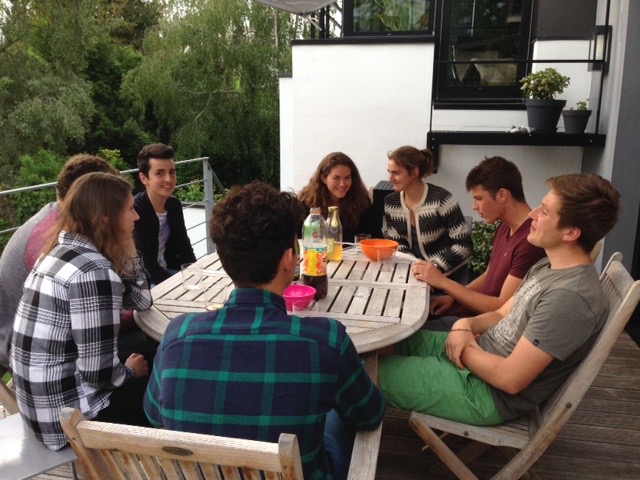It was surprisingly sunny for winter as Mairead Simpson (‘18) was walking around the Temple Of Heaven in Beijing when a little girl started looking at her with a terrified expression on her face as she started to cry. A group of the girl’s friends with equally terrified expressions on their faces began walking towards Simpson, flip phones in hand as they nervously took pictures of Simpson’s sun stricken hair. She realized in the sun her hair looked more red than it did brown, which must have startled the girl. From then on, Simpson’s perspective on travelling overall changed as she previously thought that most people were used to seeing tourists. “I did not think the way I looked would affect someone that much, especially since I thought China as a whole would be used to having tourists around,” Simpson said.
Simpson is not alone. During her junior year abroad in France, Grace Bake (‘17) learned more about French culture, whilst living with a host family. “It let me understand that not everyone works or lives the same way that your family may work,” she said. During her immersion, the more fluent her French became, the more it made her feel like “less of an outsider.” “It definitely makes you feel more connected to those people,” Bake said.
Bake recalled the first time she went to a French rowing camp last October as challenging as she lacked the ability to understand simple mannerisms in order to connect with the other rowers. Feeling exhausted, Bake spent three days relying on nods, smiles and the power of listening. “From the beginning I tried to prove myself in other ways…If I did not understand what they were saying, I would show up to practice because I felt showing up was half the battle,” Bake said.
When she returned to the camp in April, after months of practice and building trust based friendships, she remembered the sense of pride that filled her when she was able to make a joke in French and have people genuinely laugh because it was funny and not grammatically incorrect. Although the curriculum at ASL provided Bake with the ability to learn a language to the level of complete fluency, Bake observed that “learning anything first hand is more beneficial because it’s not just sitting in a classroom,” she said.
Similarly, John Nation (‘19) remarked that “it’s one thing to see something on paper and completely different to see it in real life,” he said. During his time living in Syria and Egypt he recalled his fascination with ancient civilizations. “You can see all these ancient civilizations in the classroom but you can’t see how that culture has affected the modern day world,” he said. Nation remarked one of his most memorable experiences was seeing the Pyramids in Egypt for the first time. Growing up Nation and his sister read about Egyptian archaeology, leaving him in awe seeing the endless blocks of limestone concrete towering above him.
Nation was most likely part of the last generation that was able to see these amazing artifacts first hand as the majority of them have now been destroyed due the political conflicts that have taken place in Egypt and Syria. Nation described the difference in seeing the pyramids size in real life to what he had learnt in the classroom as “sobering.” “It doesn’t really register in your mind that it’s there…When you see just how much effort has gone into all of these things, you realize how amazing it is they’ve survived,” he said.
High School World Languages and Cultures Teacher Whitney Nuchereno believes the ability to travel to foreign places can lead to substantially improving one’s academic performance particularly in language. “Not only is your proficiency better and the idiomatic expression you’re using, but there’s a layer of culture added as well,” she said. She recalled being in Spain when they won the World Cup. When she returned back to school, Nuchereno was able to show her students all the first hand photos and videos from the events. “Just sharing authentic resources proves it’s really out there. What you see in a textbook doesn’t validate it enough,” she said.
Regardless of one’s motives to travel, the ability to see the world first hand sparks something that the classroom at times just cannot provide, as travelling benefits every aspect of our life, and not just our education. Bake believes travelling is like “connecting the dots,” allowing her to see and understand more of the world. “[Travelling] showed me what I could do, the people you can meet and what life really is.”





